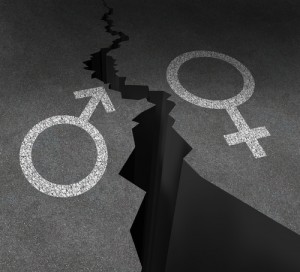ABA president urges Virginia lawmakers to ratify Equal Rights Amendment

Shutterstock.com.
The ABA is urging Virginia to become the 38th state to ratify the Equal Rights Amendment.
ABA President Bob Carlson wrote to Virginia legislative leaders on Wednesday, asking them to use the power of their office to secure ratification. His letters are here, here and here.
The ABA House of Delegates supported the ERA in 1972, 1974 and in 2016, Carlson said. “The ABA has long advocated for gender equality and stands in full support of ratification of the ERA,” he wrote.
Thirty-eight states must ratify the amendment to usher it “across the constitutional threshold,” the Associated Press reports. But there is a problem: Congress’ deadline for ratification was 1982, and only 35 states had ratified the amendment by that date.
Nevada and Illinois ratified the amendment in the last two years, bringing the count to 37 states.
Supporters say Congress could still extend the ratification deadline, but the issue is complicated because five of the ratifying 37 states later withdrew their support, according to a Washington Post op-ed analysis story published last June. Some scholars have argued that the Constitution does not expressly give states power to reverse themselves.
In his letters, Carlson said that issues involving the deadline “will still need to be resolved by Congress before the ERA will become the 28th Amendment to the U.S. Constitution.” Legislation addressing the issue was introduced in the past Congress and will be introduced again, he said.
The ERA has three sections, according to past New York Times coverage. The main clause reads: “Equality of rights under the law shall not be denied or abridged by the United States or by any state on account of sex.”
Carlson points to three effects of the ERA:
• It would establish that gender equality under the law is a fundamental and irrevocable tenet of our society.
• It would require judges to apply the highest level of scrutiny when deciding cases involving sex discrimination. That means judges would use the same standard of review in sex discrimination cases that they now use in cases involving discrimination based on race, religion and national origin.
• It would “protect and reinvigorate” existing gender equity laws.



